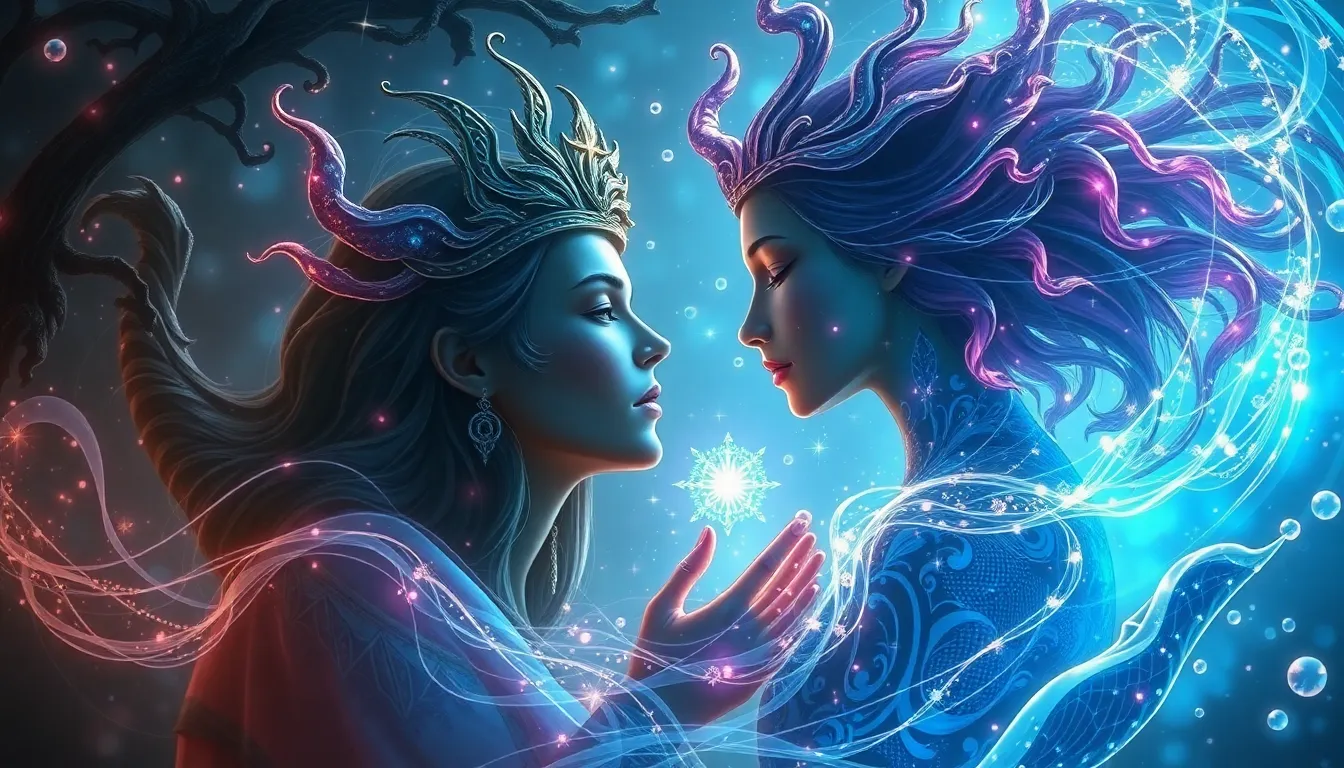The Enchantment of Love: Magical Myths That Captivate the Heart
I. Introduction
Love is a complex and profound emotion that transcends cultural boundaries, age, and time. It is often described as a feeling of deep affection, attachment, and connection to another person. The universal appeal of love lies in its ability to evoke joy, passion, and sometimes heartache, making it a central theme in human experience.
Throughout history, myths have played a significant role in shaping our understanding of love. These narratives not only reflect cultural values but also provide insights into the human condition. They offer a lens through which we can explore the complexities of love, revealing its multifaceted nature.
This article aims to explore the enchanting myths of love that have captivated hearts across generations. By examining these stories, we can uncover the timeless themes and lessons they impart about love, relationships, and the human experience.
II. The Origins of Love Myths
Love myths have existed in various forms across cultures around the world. These narratives often stem from historical contexts where love was intertwined with societal norms, religious beliefs, and cultural practices.
Storytelling has been a powerful tool for sharing experiences and shaping perceptions of love. Through oral traditions, literature, and art, these myths have been passed down through generations, each retelling adding layers of meaning and interpretation.
Ancient civilizations, such as the Greeks, Romans, and Egyptians, had their unique views on love, often attributing it to divine influences or natural forces. For instance, the Greeks personified love in the figure of Eros, while the Romans celebrated it through Cupid, illustrating how deeply embedded love was in their culture.
III. The Myth of Cupid and Psyche
The myth of Cupid and Psyche is one of the most enduring tales of love in Western literature. It tells the story of Psyche, a mortal woman whose beauty rivaled that of Venus, the goddess of love. Envious of Psyche, Venus sends her son Cupid to make her fall in love with a hideous creature. However, Cupid falls in love with Psyche instead.
This myth explores themes of trust, betrayal, and redemption. Psyche must overcome numerous trials set by Venus to prove her love for Cupid. These trials symbolize the challenges faced in romantic relationships, emphasizing that love often requires patience, understanding, and sacrifice.
The symbolism of love’s trials and triumphs in this myth resonates with many, illustrating that true love can endure hardships and emerge stronger. Ultimately, Psyche’s journey to reunite with Cupid highlights the transformative power of love and the necessity of trust in relationships.
IV. The Legend of Orpheus and Eurydice
The tragic love story of Orpheus and Eurydice is a poignant narrative that explores the depths of love and loss. Orpheus, a gifted musician, falls deeply in love with Eurydice, but their happiness is short-lived when she dies from a snake bite. Overcome with grief, Orpheus descends into the Underworld to retrieve her.
This myth delves into themes of loss, longing, and the power of music. Orpheus’s enchanting music softens the hearts of Hades and Persephone, allowing him to take Eurydice back to the living world on one condition: he must not look back at her until they reach the surface. The tragic conclusion, where Orpheus looks back and loses Eurydice forever, emphasizes the fragility of love and the pain of separation.
The impact of this myth on modern interpretations of love is profound, influencing countless works of art, literature, and music. It serves as a reminder that while love can inspire great beauty, it can also lead to deep sorrow.
V. The Tale of Tristan and Isolde
The tale of Tristan and Isolde is a classic story of forbidden love that has captivated audiences for centuries. Tristan, a knight, falls in love with Isolde, the betrothed of his uncle, King Mark. Their love, sparked by a love potion, sets off a series of events that lead to tragedy and heartache.
This narrative explores the interplay of fate and free will in romantic relationships. The lovers are caught between their undeniable attraction and the societal expectations that bind them. Their tragic end raises questions about the nature of love—whether it is destiny or choice that governs our romantic lives.
Cultural adaptations of Tristan and Isolde have emerged over the years, influencing literature, opera, and film. The relevance of this story today lies in its exploration of the complexities of love, desire, and the consequences of pursuing forbidden relationships.
VI. The Enigmatic Love of Hades and Persephone
The myth of Hades and Persephone presents a unique perspective on love, intertwining themes of abduction, loss, and seasonal change. Hades, the god of the Underworld, falls in love with Persephone, the daughter of Demeter, and abducts her to be his queen.
This myth symbolizes the duality of love—its ability to bring joy and sorrow. Persephone’s descent into the Underworld marks the onset of winter, while her return to the surface heralds the arrival of spring. This seasonal cycle reflects the transformative nature of love and the balance between light and dark.
In facing adversity and separation, the love between Hades and Persephone illustrates that love can endure challenges and evolve over time, ultimately embodying resilience and transformation.
VII. The Influence of Love Myths on Modern Romance
Ancient myths have significantly shaped contemporary views on love. They provide archetypes and narratives that inform our understanding of romance and relationships today. The resurgence of romantic themes in literature and media often draws upon these timeless stories, highlighting their enduring relevance.
Psychological insights suggest that we are drawn to these love myths because they resonate with our personal experiences and desires. They offer frameworks for understanding our emotions and navigating complex relationships.
- Myths provide relatable characters and situations.
- They help us process our experiences of love and loss.
- They inspire hope and illustrate the possibilities of love.
VIII. Love Myths Across Different Cultures
Love myths vary widely across cultures, offering unique perspectives on romance. A comparative analysis reveals both similarities and differences in how love is portrayed in Eastern and Western traditions.
- Eastern cultures often emphasize duty and familial obligations in love stories, such as the Chinese legend of “The Butterfly Lovers.”
- Western myths tend to focus on individual choice and passion, as seen in the tales of Romeo and Juliet.
The portrayal of love in folklore and fairy tales also reflects cultural values. Stories such as “Cinderella” and “Beauty and the Beast” convey lessons about love, sacrifice, and personal growth, highlighting the moral implications embedded in these narratives.
IX. The Role of Myth in Personal Relationships
Personal myths about love shape our expectations and experiences in relationships. These narratives, influenced by cultural myths, inform how we perceive love and intimacy.
Understanding the impact of cultural myths on individual relationships can lead to healthier love narratives. By recognizing and challenging unrealistic expectations, individuals can cultivate more fulfilling connections.
- Identify personal myths about love.
- Reflect on how cultural narratives influence your relationships.
- Develop strategies for creating realistic and healthy love stories.
X. Conclusion
Love myths possess an enduring power that continues to enchant and inspire us. They encapsulate the complexities of human emotions, offering timeless insights into love’s trials and triumphs. By exploring these magical narratives, we can appreciate the depth of love and the stories that shape our understanding of it.
As we navigate our own romantic journeys, these myths serve as reminders of the beauty, pain, and transformative power of love, encouraging us to embrace our own stories with open hearts.


